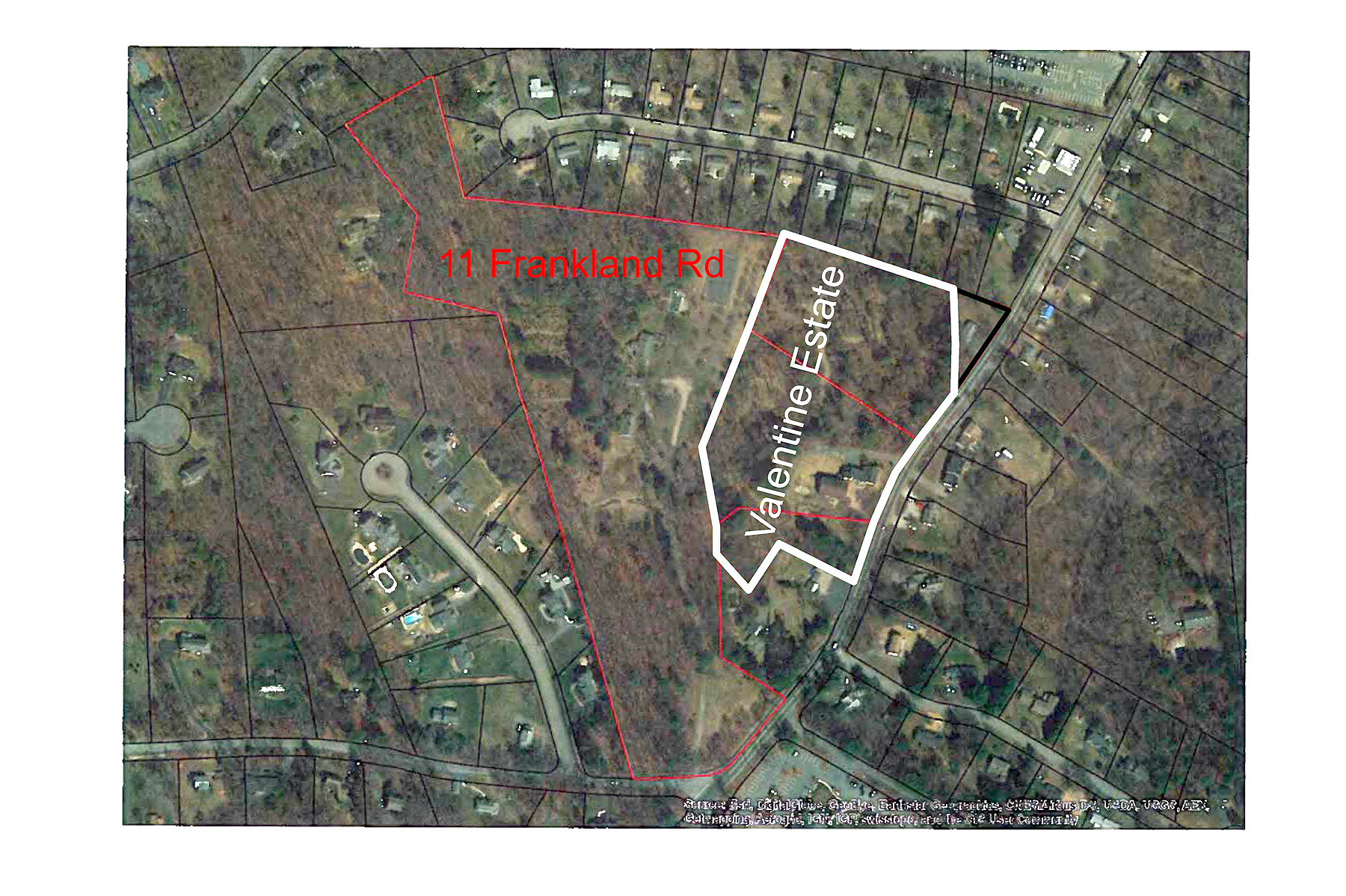Residents at the May 2 town meeting will have the opportunity to vote to purchase the Valentine Estate, an historic, almost eight-acre parcel of land at 133 West Union St. (Rt. 135).
Board of Selectmen (BOS) Chair Carl Hakansson explained the town’s interest in purchasing the property: “The Town’s interests in the property include: potential uses for the house and barn for municipal purposes, the potential fiscal impact that a 132-unit development would have on schools, public safety, infrastructure, and other municipal services, as well as the impact that such a development would have on the 16-acre parcel directly behind the Valentine property.”
Hakansson explained how the property would be funded: “After six months of negotiation, a price of 3.5 million dollars was agreed upon for the Valentine property. This amount would be derived from $700,000 of Community Preservation Funds (from Historical Preservation and Open Space funds) and a debt exclusion of 2.8 million dollars. The fiscal impact of this purchase would amount to approximately $30/annually for each household. We were able to use the newly acquired fiscal impact tool to estimate that the proposed development would cost the town approximately $280,000/annually in services if it were to be built as permitted resulting in a cost to each household of $60/annually should the town choose to not purchase the property. So fiscally the tax payers would save money in the long run if they choose to purchase the property.”
“The diversity of potential uses for the property include: administrative offices, cultural center, town farm, dog park, and many other uses. The final determination would eventually be agreed upon after a town-wide discussion,” Hakansson said. “This is an important opportunity for the citizens of Ashland to chart their own future both fiscally, structurally, and from a quality of life perspective. We realize that this is a large investment, but we hope that they will consider the consequences both fiscally and otherwise if we were to lose this opportunity.”
In a recent statement, Hakansson provided background on the sale:
“In response to a myriad of comments, municipal concerns, and to a town-wide survey where congestion and overdevelopment ranked high among the more common concerns, the Ashland BOS and town management entered into negotiations with the Capital Group in an attempt to purchase the Valentine Estate. The fact that this project was fully permitted was not going to make this an easy, nor an inexpensive negotiation.
“One must begin by acknowledging that this was not a purchase of simply a house or raw land. At this point the developers not only have their own purchase price to address, but their legal, permitting, and engineering costs as well as other “soft” costs. The fact that the development is currently permitted means there is an expectation of profit for the builder based on the number of units, as well as an expectation of profit for their partner who planned to purchase and hold the finished development.
“Because there was town concern about the future of the 16-acre parcel behind the Valentine property should the town choose to purchase the house and land, negotiations to limit future development on that parcel were commenced as well. Currently, the 16-acre parcel could accommodate 22 house lots. More importantly, it could also accommodate another ‘40B’ apartment complex similar to the project currently planned at the Valentine property, except twice the size of the current proposal. The current owners agreed to a restrictive covenant on their land that would limit any future development to 8 single-family houses. While not suggesting that eight houses would ever be built there, such a covenant would defeat any attempt to create a 40B at 11 Frankland Rd. in the future. This would allow the town to protect not only the impact of the proposed project at 133 West Union St., but a potential project of twice the size on the property at 11 Frankland Rd.
“As previously suggested, this proposal has a lot of moving parts. In order to be successful, all related town meeting warrant articles and ballot questions must pass by the requisite amount. In other words, if the Valentine purchase fails, the restrictive covenant fails by default.”

Issue Date:
April, 2018
Article Body:
